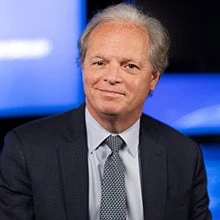
I am flying out of Busan after a very stimulating discussion on the new aid architecture at the 4th High Level Forum on Aid Effectiveness. We organized this panel discussion with the goal of learning what our development partners, particularly new partners, think about the future of aid—the challenges and opportunities.
Joining the conversation were the heads of delegations from Brazil, China, and Russia, as well as from the Gates Foundation. In addition, the Dutch Minister of Development Cooperation and the Minister of Planning of Liberia joined the panel to share views from the perspective of a traditional donor and recipient country, respectively.
Speakers set the stage for the dialogue by pointing out that the current mega trends in aid constitute a "paradox of development, as they are both promising and threatening at the same time," in the words of the Dutch Minister for Development Cooperation, Ben Knapen.
On the one hand, the past decade has seen major increases in aid volumes, including from emerging donors. For example, Zhu Hong, the head of the Chinese delegation to the Busan HLF4, drew attention to China's first White Paper on Aid and to the fact that his country's aid has been growing rapidly at a rate of 29 percent a year since 2004.
On the other hand, Geoff Lamb of the Gates Foundation added that current aid structures could change in a major way as there is a real risk of a "great contraction" by traditional donors that are suffering from fiscal tightening at home. The underlying message by all was that as much as development is subject to constant change, we have to prepare ourselves for more rapid and profound changes—where new opportunities have to be discovered more actively and new actors must be engaged in a much more inclusive manner.
The nice aspect of having Brazil, China, and Russia share the panel was that it allowed for some comparison of their respective approaches toward aid. For example, while China is providing a lot of its support through infrastructure projects (the "hardware" as some called it), Brazil channels its support almost exclusively through capacity building and technical assistance. All three countries indicated that, as new partners in the field, they have used different ministries and other public entities to deliver their aid, resulting in what Marco Farani, Director for the Brazilian Agency for Cooperation, called the challenge of "internal fragmentation."
In this context, Russian Vice-Minister of Finance Sergey Storchak pointed out that, apart from the need to provide more structure to their aid program, they also face a debate about the division of bilateral and multilateral aid. To date, Russia has provided most of its aid program through multilateral channels. However, he believes this will change as the pressure to use more bilateral aid is increasing.
All speakers emphasized the enormous potential of exploiting better the synergies among the emerging development partners, especially their experience of lifting millions of people out of poverty and using innovation and new technologies to address development challenges such as food security. Geoff Lamb mentioned the exciting new partnerships that are emerging to do just that. For example, the Gates Foundation has just signed a partnership with the Brazilian Cooperation Agency to promote agricultural development in sub-Saharan Africa and South Asia, focusing on support to small-scale agriculture and food security. They will transfer technology, give training and invest in agriculture-applied research. More partnerships such as this are needed.
After listening to all the donors at the panel, Amara Konneh, Minister of Planning in Liberia, provided food for thought for all. Liberia, as many other developing countries, is not interested in charity, he said, and will focus on increasing domestic resource mobilization as its principal source of finance in the long term. It would like that all donors better integrate their aid programs into Liberia's development strategy and that the execution of the projects follows their country system. He also suggested that the new development partners could more actively seek areas of cooperation with each other. For example, China with its track record of delivering infrastructure projects and Brazil with its experience in capacity building could complement their efforts, "with China providing the hardware and Brazil the software."
The discussion then turned to the question how the full potential of new development partners could be realized. In this context, the panelists discussed the role of multilateral institutions. As an organizing principle, Sergey Storchak underlined that "multilateralism must increase in tandem with greater globalization, but it is important to demonstrate results." They all suggested that multilaterals and, especially the Bank, can play a useful role in knowledge sharing and in bringing a diverse set of stakeholders to the table. At the same time, this has to be done in a "smart way," i.e., the value proposition of cooperation must be clear and non-bureaucratic.
This event only scratched the surface of the many topics that need to be debated. What was encouraging is that in a short 1 1/2 hours of debate many ideas were put forward. And many questions remain. As I sense a lot of appetite for a continued dialogue, we need to create more space to do so in the future.
This event was organized with support from the Organisation for Economic Cooperation and Development (OECD).


Join the Conversation